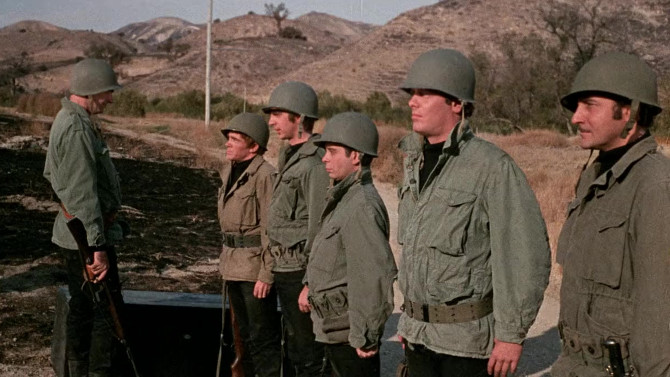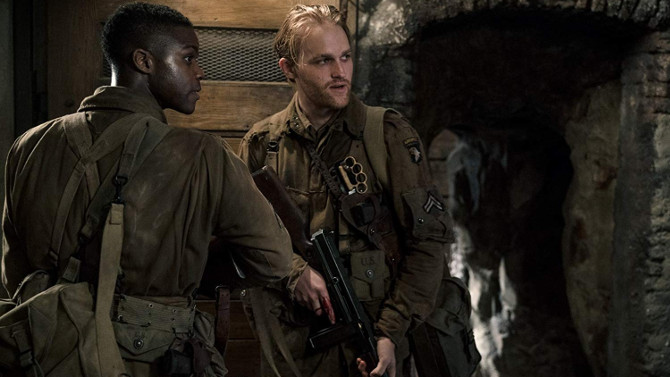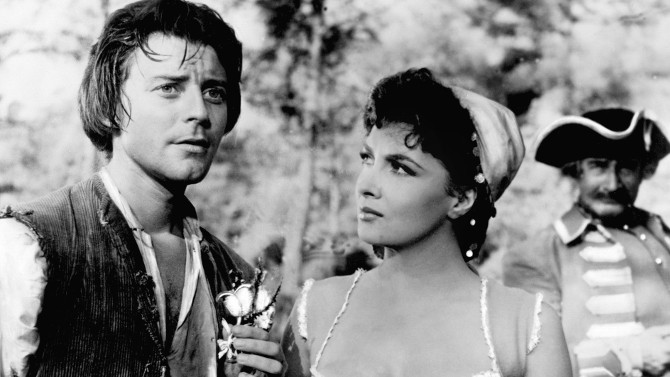
Safety First
Like a severe and utterly serious version of Stanley Kubrick’s 1964 satirical dark comedy Dr. Strangelove or: How I Learned to Stop Worrying and Love the Bomb, you would think that Fail Safe would have been the original release in theatres that was then later spoofed, yet that is not the case. Released approximately six months later in the same year, as you might imagine, it led to very poor returns at the box office – dare I say it (as the film deals with this subject matter)... it was a bomb! Despite that, over time, it has become a bonafide classic. Based upon Eugene Burdick’s 1962 novel of the same name and directed by Sidney Lumet (Dog Day Afternoon), he introduces us to our main players by way of little vignettes.
-

Safety First
Fail SafeMarch 2, 2025Like a severe and utterly serious version of Stanley Kubrick’s 1964 satirical dark comedy Dr. Strangelove or: How I Learned to Stop Worrying and Love the Bomb, you would think that Fail Safe would have been the original release in theatres that was then later spoofed, yet that is not the case. Released approximately six months later in the same year, as you might imagine, it led to very poor returns at the box office – dare I say it (as the film deals with this subject matter)... it was a bomb! Despite that, over time, it has become a bonafide classic. Based upon Eugene Burdick’s 1962 novel of the same name and directed by Sidney Lumet (Dog Day Afternoon), he introduces us to our main players by way of little vignettes.
-

What Could Have Been: The Cut-Throats
February 21, 2021A film that can only be described as perfect weekend viewing for the great Quentin Tarantino, 1971's The Cut-Throats, written and directed by John Hayes, checks off all of the boxes. Featuring a bizarre western-infused introduction that has nothing to do with the rest of the flick (Django Unchained), a World War 2 set narrative (Inglourious Basterds), Nazisploitation (both Inglourious Basterds and Once Upon a Time. . . In Hollywood), a mostly confined setting (The Hateful Eight), a sword decapitation (the Kill Bill franchise), and quite a bit of foot fetish (the entire Quentin Tarantino filmography), hopefully you can really see what I’m talking about here.
-

World War One Take
1917January 12, 2020For whatever reason, World War 1 films have never been popular fodder for Hollywood studios. Since World War 2, money makers have obsessed over this more modern conflict, leaving the War to End All Wars behind. Skewed some ten to one in favour of the 1939-1945 clash, it is refreshing to see Sam Mendes’ 1917 (which he co-writes and directs) coming out exactly one hundred years after the end of The Great War. Following Lance Corporal Blake (Dean-Charles Chapman – Tommen Baratheon in Game of Thrones) and Lance Corporal Schofield (George MacKay – Captain Fantastic), it is not surprising to first find them in a fugue-like state of nap. . . for they are now four years into a war that seems to have no end. Tasked with making a lengthy journey by dawn, the pair will have to deliver a message warning a battalion of sixteen hundred men, including Blake’s brother, Joseph (Richard Madden), that they are running into an elaborately plotted trap.
-

Overlord Overload
OverlordMarch 30, 2019A ‘B’ movie with loftier aspirations, 2018's Overlord, written by Billy Ray, directed by Julius Avery, and produced by J.J. Abrams’ Bad Robot Productions, is one of those rare movies that flips the script halfway through. . . but more on that later. On the eve of the D-Day invasion (during World War 2), a paratrooper squad has been given the gargantuan task of parachuting into a small town in France. . . their mission: to destroy a radio tower attached to an historic church – thus allowing the Allies to gain an upper hand during the paramount, multi-country attack the next day.
-

Le Swashbuckler
Fanfan La TulipeAugust 19, 2018A swashbuckling tale of adventure, romance, and intrigue, Fanfan la Tulipe (1952), directed by Christian-Jaque, found its way to me rather serendipitously – a thirty-three dollar Criterion feature tucked in the back of a country thrift shop (price tag – two bucks). Following the titular character, played by Gérard Philipe, as he gets embroiled in one scenario after another, mostly thanks to his fortune having been told, this occurrence helps form his unorthodox path (more on that later). . . I must say that it seems rather funny that I found this one in a place wholly unexpected, especially since the film deals with fate and destiny. Played with a comedic spin, the story is set during the Seven Years’ War, and as the voice over (narrated by Jean Debucourt) puts it: “war, the only recreation of kings which the people could enjoy. . .the regiments of Picardy, Aquitaine and Burgundy fought elegantly, killing each other with grace, disemboweling in style. . . His Majesty’s soldiers found this war so pleasant that they made it last seven years”.
-

The War Channel
DunkirkJuly 21, 2017Both awe-inspiring and controversial, vividly complex while often being infuriatingly loose in structure and character, Christopher Nolan’s 2017 effort, Dunkirk plays like an epic silent war film of yesteryear. Revolving around the rescue of British soldiers from the beaches of Dunkirk, France in 1940, it is a piece of history well worth telling (and this film will make sure that the harrowing tale will be known by a wider audience still). With hundreds of thousands of men trapped by the Atlantic Ocean on one side, swiftly approaching German troops on the other and bombers overhead, it feels like the soldiers are monkeys in a barrel, just waiting to be shot. The British military have basically given up on them, hoping to rescue a measly thirty-five or so thousand, leaving the other three hundred and fifty thousand for slaughter. Despite the short span of the English Channel, their destroyers and other navy vessels are easy targets on the open seas – meaning that they must pull back and fight another day.
